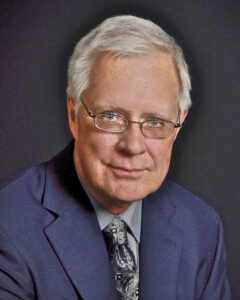By Greg Cusack
Guest Column

I appreciate Iowa Catholic Conference Executive Director Tom Chapman’s informative updates about the Iowa Legislature that regularly appear in The Catholic Messenger. Chapman is admirably adept at concisely presenting the essence of particular pieces of legislation as well as why the Iowa Catholic Conference (ICC) either supports or resists them. This valuable service helps us to connect policy with Jesus’ teachings, which form the guidelines by which each of us ought to measure the rightness or wrongness of proposed legislation.
As an American historian and as someone privileged to have served in elected office on Davenport’s City Council and in the Iowa House of Representatives, I humbly submit some additional criteria that I think can help thoughtful citizens assess the words and deeds of officeholders. Similar to what Mr. Chapman does, I think these criteria will help us rise above hyper-partisan and emotionally fueled rhetoric that is not intended to inform but, rather, to upset and mislead us.
Principles for Evaluation
First, does the proposed legislation meet the standard of what the founders of our Constitution called civic virtue? The founders expected that all of us, citizens and officeholders alike, would value civic virtue as an essential tool to focus on protecting and advancing the good of all over and above anything that is self-serving or that would benefit only a few.
Civic virtue requires that we ask of each proposal: How is this going to serve the interests of all Iowans (or Americans, when examining federal legislation)? Specifically, does it help, empower and ennoble all? Would it serve only some of us or, far worse, negatively affect some of us? Any proposal that failed this test would not deserve our support! Please note that this requires responses based on verifiable data and not on just vague rhetoric or promises empty of any factual proof.
Second, using verifiable data, proponents should demonstrate that their proposal is not harmful to the many or even to a few, but is also necessary or an improvement and a better alternative to the current state of affairs. For illustration purposes, look at how these principles can clarify a current policy issue, such as the ongoing effort in the Iowa Legislature to reduce and then ultimately eliminate Iowa’s income tax.
At first blush, this may seem to be an attractive idea. However, where is the verifiable data that proves that changing the income tax system in such a fundamental way will work to the benefit of all Iowans, now and in the future?
Where is the data demonstrating that Iowa is currently meeting its essential purposes regarding such things as cleaning up Iowa’s waterways, adequately funding our public schools, assisting students of modest income to be able to attend the college, community college or skills-training school of their choice, etc.?
Does Iowa government even have a clear statement showing what Iowa’s essential needs are? If so, what data exists to show how adequately we are attaining or retaining those essential needs?
Where is the data showing that lowering or eliminating income taxes will not jeopardize Iowa’s ability to meet its essential responsibilities, including having sufficient emergency funds available to meet unanticipated problems in the future?
How does Iowa’s overall tax structure compare with those of all other states, with respect to adequacy, equity and flexibility? What might those comparisons suggest with respect to the wisdom of the proposed changes?
Where is the data showing that lowering or eliminating the income tax will not disproportionately affect the lower-middle class? Where is the data demonstrating that the wealthiest are paying their “fair share” under the current tax system and future tax system? Does this system meet the criteria of serving the needs of all over the wishes of the few?
We should subject each legislative proposal to such an analysis if we really take Jesus’ teachings as our own.
(Greg Cusack taught college, served on the Davenport City Council from 1969-73, and the Iowa House of Representatives from 1973-81. He then served as executive director of National Catholic Rural Life Conference from 1981 until late 1986. His public service continued in other areas until he retired as Chief Benefits Officer of the Iowa Public Employees Retirement System in 2004.)











